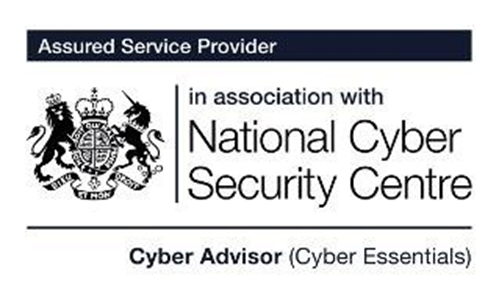In the age of digital technology, cyber security has become an increasingly important topic for businesses and organisations. With the rise of ransomware attacks, companies must protect their data and IT infrastructure from malicious activity. Managed cyber security is a powerful tool to help reduce risks posed by these attacks and protect businesses from harm.
This article will explore the many factors of managed cyber security. What it is, its benefits, common types of cyberattacks, the driving force behind the increase in ransomware attacks, the vulnerabilities of cloud computing and remote working, and how Optimising IT can help you secure your business. Learn more about how a cyber security consultancy can help reduce risks posed by increasing ransomware attacks now!
Managed Cyber Security
Managed cyber security is an invaluable service provided by Managed Security Service Providers (MSSPs). Their expertise and experience in IT infrastructure management enable organisations to protect their networks and data from ransomware attacks. Through managed services, businesses can access the latest security technologies and receive regular reports on how their systems perform against industry standards or regulatory requirements.
Furthermore, MSSPs can provide expert advice on how best to respond should a breach occur, reducing the time it takes for businesses to recover from an attack. Overall, managed cyber security is an essential tool for any organisation looking to safeguard its systems without investing heavily in hardware or software solutions.
The Benefits Of Managed Cyber Security
A cyber security consultancy can provide businesses with a range of benefits that help to reduce the risks associated with ransomware attacks and other cyber threats.
Reducing the Likelihood of a Cyberattack
Managed cyber security services can help protect your business from malicious actors by monitoring for anomalies in network traffic and suspicious activity and applying security patches as soon as they become available. As a result, it helps to reduce the likelihood of a successful exploit and can provide peace of mind for businesses.
Detecting & Responding Quickly
By leveraging advanced analytics tools and automated processes, managed cyber security services can detect malicious activities quickly and respond swiftly to any threats that may arise. These services also provide organisations with real-time alerts when suspicious behaviour is detected, so they can take action before it’s too late.
Preventing Data Breaches
Managed cyber security services are designed to prevent data breaches by ensuring that systems are up-to-date with the latest security measures and regularly scanning for vulnerabilities. Additionally, many managed service providers offer comprehensive encryption solutions to secure sensitive data further.
Complying With Regulations
Additionally, managed cyber security services can help organisations comply with complex regulations such as GDPR or HIPAA by providing detailed reporting on compliance issues and assisting in creating policies designed to ensure regulatory compliance.
Overall Security Posture
Ultimately, cybersecurity as a service gives organisations greater visibility into their overall security posture by providing detailed reports on system performance and potential vulnerabilities. By proactively addressing these issues before an attack occurs, businesses can better protect themselves from malware or other forms of attack that could lead to costly downtime or data loss.
Ransomware Is On The Rise, And Cyber Security Risks Are Increasing
The threat of ransomware attacks is real, and businesses must take steps to protect their data and IT infrastructure. In the past year, ransomware attacks have increased by 300%, with no sign of slowing down anytime soon. As more businesses move to work remotely, they are exposed to increased cyber security risks as hackers can exploit vulnerabilities in cloud-based applications and services. The average cost of a ransomware attack is a staggering $4 million, making it essential that businesses invest in managed cyber security solutions to help reduce these risks.
Managed cyber security is a powerful tool for protecting businesses from potential attacks. It provides companies with an extra layer of protection against malicious activity by keeping systems up to date, monitoring for unusual activity, providing employees with security awareness training, and having a robust incident response plan. By deploying managed cyber security solutions, businesses can better protect themselves from potential threats and reduce the costs associated with recovering from an attack if one does occur.
It is also crucial for businesses to be aware of the different types of cyberattacks they may face and how best to handle them if they do occur. Commonly seen attacks include phishing emails, malware downloads, distributed denial-of-service (DDoS) attacks and other forms of malicious software such as ransomware. By being proactive about cyber security measures such as anti-virus software updates and employee training sessions on cybersecurity best practices, organisations can help reduce the risk posed by these threats.
Train Your Staff Members
Organisations must also ensure that all staff members are adequately trained in cybersecurity best practices to quickly identify and respond to any malicious activity. Ensure that staff receive regular updates on any changes to their system’s cybersecurity protocols so that everyone knows the requirements to keep company data secure at all times.
By investing in managed cyber security solutions and taking proactive measures against potential risks posed by malicious activity online, organisations can help protect themselves from harm while also reducing costs associated with recovering from an attack if one does occur. Companies that do not have adequate protection measures in place could pay enormous costs for damages caused by ransomware or other malicious software which was preventable with proper protection measures set beforehand.
Managed Cyber Security Can Help Reduce Risks And Protect Businesses
With the continually evolving digital landscape, businesses are more vulnerable than ever to malicious attacks. To ensure your data is safe from ransomware and other cyber threats, it is essential to take proactive steps to protect your organisation. Managed cyber security offers a comprehensive solution that puts you in control of your company’s IT infrastructure.
From keeping systems updated with the latest patches and software versions to monitoring for suspicious activity, managed cyber security services can help reduce the risk of a successful attack on your business. Additionally, interactive online courses enable employees to stay informed about best practices when handling confidential data and to interact with potential attackers via emails or other channels.
In the event of an incident, having a robust incident response plan is critical for minimising damage and recovering quickly. A well-crafted plan should clearly outline procedures that all personnel must follow to respond decisively and contain any potential harm before it’s too late.
A cyber security consultancy provides businesses with total peace of mind knowing a team constantly monitors their IT infrastructure around-the-clock while also delivering timely updates on new risks or vulnerabilities as they emerge. As a result, it assures companies that their data will always remain secure from malicious actors.
Common Types of Cyber Attacks
Cyber attacks are becoming increasingly sophisticated and varied, making it difficult for businesses to stay on top of the latest threats. Companies need to understand the different types of cyber-attacks to better defend against them. Here are some of the most common types of cyber attacks:
Denial-of-Service (DoS) Attacks
A DoS attack occurs when an attacker attempts to disrupt a computer network or system by flooding it with large amounts of data or requests. The design of this attack is to overwhelm a target’s resources, making it unable to respond to legitimate requests from users.
Phishing
Phishing involves sending emails or messages that appear to come from trusted sources to deceive victims into divulging sensitive information such as passwords and credit card numbers. Cybercriminals often use social engineering techniques such as spoofing and creating fake websites to gain access to personal information.
SQL Injection
In a SQL injection attack, an attacker takes advantage of vulnerabilities in web applications or databases by injecting malicious code into user input fields. This attack allows attackers to access confidential data stored in databases and manipulate it.
Cross-Site Scripting (XSS)
When cybercriminals inject malicious scripts into otherwise benign and secure websites, this is known as a cross-site scripting (XSS) attack. When visitors view these pages, they unknowingly download the malicious code, which hackers can use to steal cookies, hijack accounts, launch denial-of-service attacks, and more.
Malware
Malware is any malicious software created to steal data, hijack computers, or disrupt systems. Malware can come in many forms, including trojans, viruses, worms, spyware, and ransomware all with different methods for infecting computers and networks.
By understanding the different types of cyber-attacks that exist today, businesses can take steps towards mitigating the associated risks. Cybersecurity as a service offers organisations end-to-end protection from these threats by providing regular updates on system health and performance and guidance on how best to protect company data from unauthorised access or manipulation by cybercriminals.
The Recent Rise of Cyberattacks
The past year has seen a dramatic increase in cyberattacks, with malicious actors becoming increasingly sophisticated and leveraging new technologies to launch attacks. Several factors have contributed to this rise in cybercrime, including the growth of remote working, the proliferation of cloud services, and the increasing sophistication of attacks.
The rapid shift to remote working has made it easier for hackers to target businesses as employees access sensitive data from unsecured networks or devices. Cloud services have also opened up new opportunities for attackers as companies move their critical data off-premises and onto the cloud. The increased use of mobile devices by employees further increases the risk of an attack, as these devices are often not adequately secured against malicious activity.
Attackers have become more sophisticated in recent years, deploying complex techniques such as phishing campaigns to gain access to sensitive information or systems. Cybercriminals have also taken advantage of the COVID-19 pandemic to launch phishing and other attacks targeting organisations that are unprepared or unaware of these threats. In addition, many organisations have yet to keep up with patching and updating their systems, leaving them more vulnerable to attacks.
Businesses must ensure they keep their systems up-to-date and follow best practices for employee security awareness training to protect against these threats and reduce risks associated with cyberattacks. Additionally, companies should consider investing in cybersecurity as a service which can provide additional protection through monitoring for unusual activity and providing expert advice on how best to respond if an attack does occur.
How Cloud And Remote Working Create Vulnerabilities
The growth of cloud and remote working has exposed businesses to cyber threats more. As organisations transfer data and applications to the cloud, there is a heightened risk of unauthorised access or malicious intent. Cloud services are also susceptible to attacks from external sources, such as hackers, who may exploit weak networks for entry.
Moreover, the use of personal devices for work can create further vulnerabilities. Employees may not continually update their hardware with the most recent security updates, making them vulnerable to malware or cyberattacks. Additionally, staff members could unintentionally access unsecured Wi-Fi while out and about or working away from the office – which could put corporate information at risk.
Email is another area in which companies should be cautious to protect against cyber attacks. Increasingly popular phishing scams are a method used by attackers to gain access to confidential data or systems. Social engineering is another ploy used by criminals, where they attempt to get hold of sensitive information through manipulation rather than technology-based methods.
Finally, malware and viruses remain a significant threat to cloud computing firms – especially those without comprehensive security protocols. Malware can spread rapidly across networks if overlooked, potentially giving assailants access to company resources and private data. Thus businesses must invest in managed security services, including anti-malware software and employee training on IT safety best practices to mitigate their exposure and avoid possible breaches from occurring down the line.
How You Can Mitigate Cyberattacks
Organisations have a range of strategies they can employ to protect themselves from cyber-attacks. A comprehensive incident response plan, employee training, security audits and the assistance of a managed security service provider are all critical elements that must be in place to ensure the best possible protection against malicious actors. Implementing these measures will help businesses reduce their risk of an attack occurring and mitigate any potential damage should one happen.
A Cybersecurity consultancy identifies problems, evaluates security issues, assesses risk, and implements solutions to defend against threats to companies’ networks and computer systems. They deal with many variables when evaluating security systems and craft layers of protection in a fast-changing IT landscape.
How Optimising IT Can Help You
At Optimising IT, we dedicate our time and resources to providing the best possible service that gives businesses the best cybersecurity. Our highly-experienced professionals are trained in detecting and preventing cyber-attacks and helping our clients maintain a secure IT infrastructure.
Our comprehensive suite of services helps businesses protect their networks, data and systems from ransomware attacks while also helping them comply with complex regulations and giving them greater visibility into their overall security posture. We provide around-the-clock monitoring to detect malicious activity on your IT networks and regular system updates to ensure you have the latest security technologies installed. Our team can advise on how best to respond to a breach or attack, enabling you to minimise damage and recover quickly.
In addition to our technical support services, we offer employee training programs that teach staff about cyber security best practices, such as using strong passwords and avoiding phishing scams. Our experts can also guide you in setting up an effective incident response plan that ensures any potential issues are dealt with swiftly and efficiently.
No matter what size business you run or what industry you’re in, Optimisingit.co.uk has the expertise to help protect your business from ransomware attacks and data breaches. Get in touch today for a free initial consultation so we can assess your specific needs and discuss how our managed cyber security solutions can help keep your business safe from harm.












